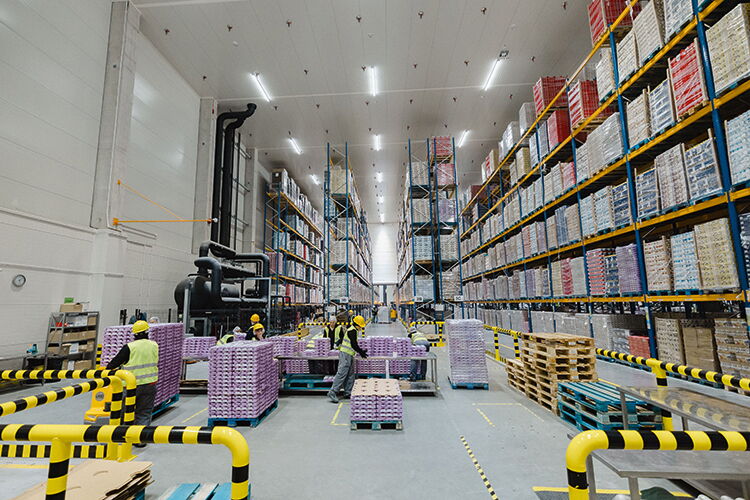The logistics operator is an important link in harmonizing the preferences of all supply chain participants, thus ensuring fresh and timely deliveries. How can logistics company's business flexibility contribute to effectively meeting and balancing the needs of all stakeholders?
The current supply chain structure in the fresh produce sector is in and of itself extremely demanding, encompassing both producers and consumers. Consumers expecting the highest quality goods and services are the main drivers of this phenomenon. The essence of this trend lies in the conscious decisions made by consumers, who strive to choose products of the best quality that are safe to eat, and are aligned with their personal preferences and lifestyles. For logisticians, therefore, it is a real challenge to meet the high demands of the market.

Engaging in dialogue with contractors, with both clients and service recipients, and to listen to their expectations and understand their directions, is key. Partnering with them to create services that align with future market expectations, is crucial for developing and maintaining the organization’s business agility.
Standardization is one of the tools that significantly support business agility in an enterprise. It is the process of introducing standards in an organization, understood as the best way to perform a process at a given time. However, a question arises: Does the introduction of standards make the company rigid? Does it close the organization to change and limit employee creativity? Nothing could be further from the truth. The use of standards by companies supports the predictability and stability of processes and their safety. At the same time it is a basis for reflection on how to perform the process efficiently. On the other hand, it is important to remember that for standardization to support business agility, it cannot be the goal itself. The overriding intention is to bring about a situation where standardization, together with continuous improvement, builds stability and process efficiency in the company.
For a standard to effectively fulfill its role, it must have the right characteristics. First, it must be established; that is, all stakeholders agree on how the process is to be carried out. Secondly, it must be written down, i.e. there must be documentation describing how the process works. Third, it is known; employees have been trained on the standard, and it is applied, which means that employees follow the process according to the established standard.
The implementation and application of standards create opportunities for continuous improvement, which is the business culture at Fresh Logistics Poland. Standards are regularly reviewed and reflected upon. What does this mean? In our organization, we constantly measure processes and check whether the established standard is applied. At the same time, we subject the entire process to reflection, that is, the existing status quo is questioned in terms of, for example, market expectations.
Verification and reflection, integral elements of continuous improvement, often prompt organization to revise their standards. The effect of such a change can be the realization of more ambitious quality goals, further building a competitive advantage or adapting the process to changing market expectations. Thanks to standardization, the organization has a great base for undertaking improvement activities. Thanks to such practices, the quality of delivery at Fresh Logistics Polska has been at a high level for years.
Last but not least, in line with our prevailing principle of "Better Every Day," we actively seek improvements and improve processes daily. Without this commitment, we would not be able to propel our business to the next level, especially during times of heightened market expectations. Cooperation and mutual understanding among all participants in the supply chain are also critical. Today, merely having a large fleet of vehicles is insufficient. It is essential that all of the company's internal units work together, along with shippers and receivers, to achieve synergies. Without this, long-term development in our industry would be unattainable.
Today, consumers value predictability, security and freshness of delivered goods. Therefore, logistics operators who understand market mechanisms should bet on standardization as a step towards process stability and predictability, while simultaneously focusing on continuous improvement in processes and services offered. This allows them to respond quickly to changing market expectations, thus offering their customers a sense of security and stability of cooperation.

Maja Kierzek-Piotrowska
Business Process Integration Director, Fresh Logistics Polska, Raben Group





















